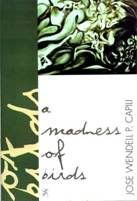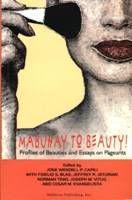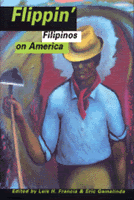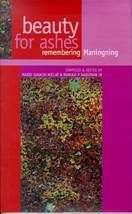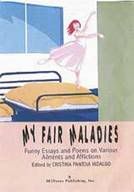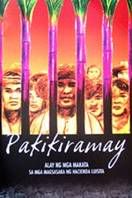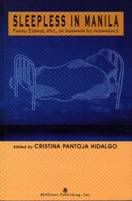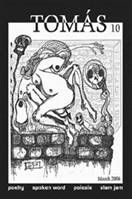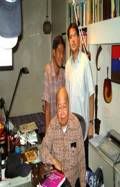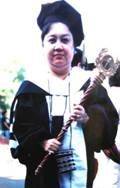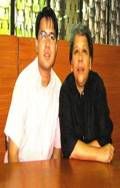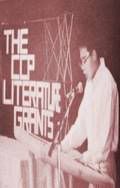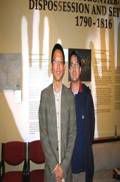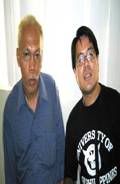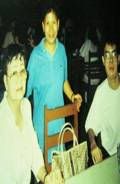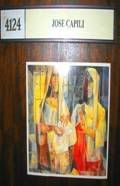From Laurence Arnold, Bloomberg: Lena Horne, Jazz Singer Who Broke Color Barriers, Dies at 92
By Laurence Arnold
May 10 (Bloomberg) -- Lena Horne, the jazz singer who broke color barriers in Hollywood and fought for civil rights during a seven-decade career that took her from the Cotton Club in Harlem to Hollywood and the Broadway stage, has died. She was 92.
She died yesterday at the New York-Presbyterian/Weill Cornell Medical Center, the New York Times reported, citing her son-in-law, Kevin Buckley.
Thrust into show business as a dancer at age 16, Horne became one of the highest-paid black entertainers in America by 1943. She was one of the last survivors of the era of popular music that produced Duke Ellington, Billie Holiday, Ella Fitzgerald and Sarah Vaughan.
She was the offspring of generations of mixed-race couples, and her alluring beauty -- long frame, copper-colored skin, dark eyes, high cheekbones and broad smile -- helped her land a movie contract with Metro-Goldwyn-Mayer in 1941. She was a pinup girl popular among U.S. soldiers during World War II.
“There was Helen of Troy and then Lena Horne,” choreographer Agnes de Mille said of Horne at the Kennedy Center Honors ceremony in 1984. “It’s her magic. I have seen people lean out of their seats to watch her.”
Horne captivated audiences with elegant interpretations of songs such as “Black Coffee” and “Just One of Those Things.” Though she grew tired of performing it, her signature song, “Stormy Weather,” had resonance in describing a public career and a personal life complicated by race and racism.
‘This Old Broad’
“I’ve had stormy weather all my life, and if anybody can sing about the trouble they’ve seen, it’s this old broad,” she said in 1981 during the run of her hit one-woman Broadway show, “Lena: The Lady and Her Music.”
In 1941, Horne signed a seven-year movie contract with MGM that made her the only black woman with a long-term studio deal. She appeared in a dozen films over the next decade, mostly in singing roles that could be excised when the films were shown in white theaters in the U.S. South.
“They didn’t make me into a maid, but they didn’t make me anything else, either,” she later wrote. “I became a butterfly pinned to a column, singing away in Movieland.”
To MGM, Horne was “the Negro beautiful enough -- in a Caucasian fashion -- for white Americans to accept,” James Gavin wrote in his 2009 biography, “Stormy Weather: The Life of Lena Horne.”
Friendship With Robeson
Horne acted on her convictions about racial equality. During a World War II show for U.S. troops in Kansas, she walked off the stage because German prisoners of war were seated in front of black soldiers. She was blacklisted from U.S. films for seven years in the 1950s because of her friendship with Paul Robeson, the black actor and civil-rights activist. In 1963, she marched on Washington with Martin Luther King.
“Whatever petitions I’ve signed or benefits I’ve played I’ve not done because I had any broad or deep political program I was pushing,” Horne wrote in her autobiography. “I had just learned from my father and from my grandmother not to take any nonsense from anybody.”
Lena Mary Calhoun Horne was born on June 30, 1917, into a professional middle-class family in Brooklyn, New York. Her paternal grandmother, Cora, was a community leader and a feminist, and she had her 14-month-old granddaughter Lena appear on the cover of the National Association for the Advancement of Colored People’s October 1919 “Branch Bulletin.”
Early Abuse
Horne’s mother, Edna, was estranged from her husband, Edwin. She struggled to be an actress and alternated between taking young Lena out on the road and leaving her with relatives or strangers, mostly in the South, some of whom abused her.
When Horne turned 16, she was sent by her mother, who was now back in New York and remarried, to an audition to join the chorus at the Cotton Club in Harlem, where black performers entertained mostly white, affluent audiences. It was there that Horne met jazz greats such as Cab Calloway and Duke Ellington, whose composer, Billy Strayhorn, became a big influence.
In an attempt to win freedom from her mother and stepfather, Horne in 1939 married Louis Jones, a preacher’s son and politician, with whom she had two children. They separated in 1941 and divorced in 1944.
“I was simply using marriage -- and I’m afraid Louis -- to run away from a life I did not like,” Horne wrote.
In 1940, she took a job with the Charlie Barnet orchestra, a white swing band. On tour she would sometimes be forced to wait in the ladies’ room instead of remaining on stage with the rest of the band. When hotel clerks turned her away, Barnet would take the whole band to stay somewhere else.
Too Beautiful
Her film career began when an MGM talent scout saw her perform at Little Troc in Hollywood. Her complexion made fitting onto the screen difficult. Too dark-skinned to be considered for a starring role in segregated America, she was nonetheless seen as too light and beautiful to play a maid.
“She opened so many doors as the first beautiful black woman in movies,” actress Leslie Uggams told Jet magazine in 2007. “Black women were only allowed to play maids in the movies, and all of a sudden, the black community had this goddess.”
She had major roles in “Cabin in the Sky” and “Stormy Weather” in 1943. In other films such as “Panama Hattie” (1942) and “Swing Fever” (1943) she was used primarily in musical numbers.
She prospered as a nightclub entertainer, appearing with Count Basie, Tony Bennett and Harry Belafonte. Through much of her career, she had a standoffish demeanor on stage that she attributed to the pressure she put on herself to succeed for her family’s sake.
‘I Hated It’
“My mother wanted me to be a star and I worked hard for her goal, though I hated it so much that when later I achieved what she wanted for me I could really not enjoy it,” she wrote.
Horne married Lennie Hayton, a composer and bandleader who ultimately became her manager, in 1947 in London. Because he was white, they kept the relationship secret for three years.
Horne joined Robeson in a group called Progressive Citizens of America to fight racism and was blacklisted from film, television, radio and recording in 1950. She toured nightclubs and by 1956 returned to the movies as the blacklist was lifted. She appeared at New York’s Waldorf-Astoria hotel in 1957 and starred in the Broadway musical “Jamaica” in 1957 to 1959.
During the 1960s, Horne appeared at rallies for civil rights throughout the South. In 1971 and 1972, she suffered the deaths of her husband, her father and her son, Teddy, in a period of 12 months and briefly retreated from public life.
Santa Barbara Retirement
“She was finally devastated,” Horne’s daughter, Gail Lumet Buckley, wrote in a book on her family. “She retired to Santa Barbara, California, to plant cacti.”
After emerging from that crisis, she began to enjoy performing more.
“It took 1960s politics and 1970s personal grief for her to have the courage to present herself to an audience,” Buckley wrote. “When she did, she enjoyed the greatest triumph of her career.”
She played Glenda the Good Witch in “The Wiz” (1978), directed by Sidney Lumet, Gail Buckley’s former husband. Her “Lena: The Lady and Her Music” played to sold-out crowds on Broadway for 333 performances in 1981 and 1982 and won a special Tony Award and two Grammys. Newsweek said of her performance: “Lena Horne is a revelation -- of astonishing power and complexity.”
Horne continued to record through the 1990s, releasing her last studio recording, “Soul,” in 1999. Her last major public appearance was in 1999 at an all-star salute, “Lena: The Legacy,” at Avery Fisher Hall in New York’s Lincoln Center.
----With assistance from Laura Tillman in New York. Editors: David Henry, Jim Ruane.
To contact the reporter on this story: Laurence Arnold in Washington at larnold4@bloomberg.net
To contact the editor responsible for this story: James Greiff at jgreiff@bloomberg.net


1943: A poster advertising Horne's lead role in Stormy Weather. Her version of the title song was a major hit, and became her signature piece,
Photograph: ITV/Rex Features

1958: Horne was respected as both a jazz and blues singer, and had numerous hit showtunes
Photograph: Cinetext/Sportsphoto Ltd/Allstar
1948: Horne was considered Hollywood's first black sex symbol,
Photograph: Cinetext/Sportsphoto Ltd/Allstar
1947: At the Copacabana nightclub. Such appearances provided a lucrative addition to her income from film and radio
Photograph: Leonard McCombe/Time & Life Pictures/Getty Image
1942: Performing in the film Panama Hattie, the first of several movies she made with MGM early in her career,
Photograph: Cinetext/MGM/AllstarLabels: film, hollywood, jazz, lena horne, music


